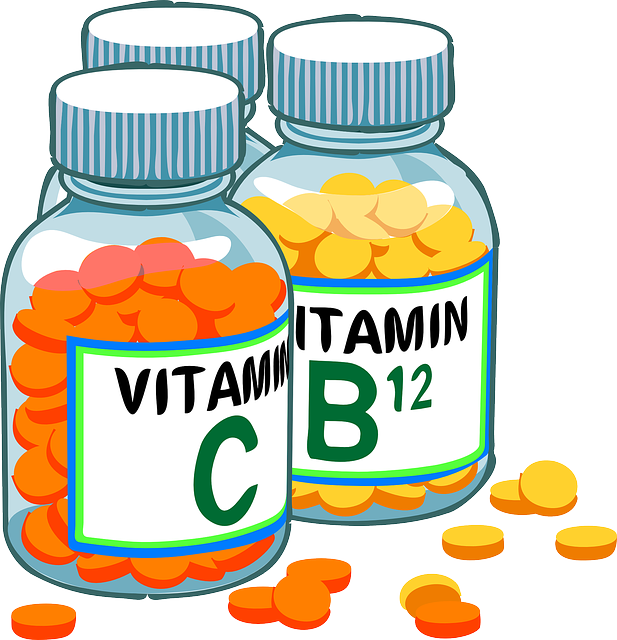Autoimmune-related inflammation, a complex immune response causing chronic swelling and damage, is managed through advanced medical practices including anti-inflammatory therapies. Stem cell therapy, PRP therapy, peptide therapy, and holistic approaches aim to reduce inflammation and promote tissue repair, addressing conditions like rheumatoid arthritis and inflammatory bowel disease. These cutting-edge treatments, combined with advanced pain relief and regenerative medicine, offer hope for effective long-term management of chronic inflammation, a silent health threat linked to diverse conditions.
Inflammation is a complex physiological response that, when chronic, can lead to severe health issues. Autoimmune disorders play a significant role in causing persistent inflammation, affecting millions worldwide. This article explores cutting-edge therapies aiming to combat this condition. We delve into innovative solutions like stem cell therapy, PRP (Platelet-Rich Plasma) therapy, and peptide therapy, offering new hope for management. Additionally, we cover holistic approaches, advanced pain relief techniques, and regenerative medicine, providing a comprehensive guide to anti-inflammatory treatments.
- Understanding Autoimmune-Related Inflammation
- – Definition and causes
- – Common autoimmune disorders contributing to inflammation
- – The impact of chronic inflammation on the body
Understanding Autoimmune-Related Inflammation

Autoimmune-related inflammation arises when the body’s immune system mistakenly attacks healthy cells and tissues, leading to chronic swelling and damage. This complex condition can manifest in various forms, affecting different organs and systems within the body. Understanding the intricate mechanisms behind autoimmune inflammation is crucial for developing effective treatments. Advanced medical practices now offer a range of anti-inflammatory therapies designed to curb this overactive immune response.
Stem cell therapy, for instance, has shown promise in regenerating damaged tissues and modulating inflammatory processes. Similarly, Platelet-Rich Plasma (PRP) therapy utilizes the body’s own healing factors to reduce inflammation and promote tissue repair. Peptide therapy, another emerging approach, employs specific chains of amino acids to target and modulate immune responses. Moreover, holistic inflammation management integrates natural remedies and lifestyle changes to provide advanced pain relief and treat the underlying causes of inflammation. These cutting-edge treatments, combined with regenerative medicine, offer hope for managing autoimmune-related inflammation effectively.
– Definition and causes

Inflammation is a complex physiological response characterized by redness, swelling, heat, and pain, often stemming from an overactive immune system mistakenly identifying healthy cells as foreign invaders. This autoimmune-related inflammation can have far-reaching effects on various bodily systems, leading to chronic conditions if left unchecked. Advanced medical therapies are now offering new hope for managing this condition effectively.
Among the emerging treatments, anti-inflammatory therapies aim to suppress excessive inflammatory responses. Stem cell therapy for inflammation and PRP (Platelet-Rich Plasma) therapy have gained attention for their potential in regenerating damaged tissues and modulating the immune system. Peptide therapy for inflammation targets specific proteins involved in the inflammatory process. Holistic inflammation management considers environmental factors, diet, and lifestyle changes as integral parts of a comprehensive treatment plan. Additionally, advanced pain relief treatments utilize regenerative medicine for inflammation, promoting tissue healing and reducing pain through innovative techniques that go beyond traditional pharmacology.
– Common autoimmune disorders contributing to inflammation

Autoimmune-related inflammation is a complex condition driven by various disorders that cause the body’s immune system to attack healthy cells and tissues, leading to chronic swelling and damage. Common autoimmune disorders contributing to inflammation include rheumatoid arthritis, inflammatory bowel disease (IBD), multiple sclerosis (MS), psoriasis, and lupus. These conditions can significantly impact quality of life, often requiring long-term management with conventional medications that may come with side effects.
Advanced treatments are emerging to address this unmet need, focusing on both targeted interventions and holistic approaches. Anti-inflammatory therapies like stem cell therapy for inflammation, PRP (platelet-rich plasma) therapy for inflammation, and peptide therapy for inflammation offer promising avenues for reducing swelling and restoring tissue function. Additionally, regenerative medicine for inflammation aims to replenish or replace damaged cells and tissues, providing potential long-term solutions. Holistic inflammation management techniques, such as dietary modifications, stress reduction, and exercise, also play a crucial role in supporting overall health and mitigating autoimmune responses.
– The impact of chronic inflammation on the body

Chronic inflammation has profound and detrimental effects on the human body. It’s a silent yet powerful process that can lead to a range of health issues, from heart disease and diabetes to autoimmune disorders and even cancer. When inflammation persists over long periods, it disrupts normal bodily functions, damages tissues, and impairs organ systems. The body’s natural healing mechanisms become overwhelmed, leading to a cycle of increased inflammation and ongoing damage.
Advanced pain relief treatments and anti-inflammatory therapies, such as stem cell therapy for inflammation, PRP (Platelet Rich Plasma) therapy for inflammation, and peptide therapy for inflammation, offer promising solutions in the fight against chronic inflammation. These innovative approaches leverage the body’s inherent regenerative capabilities through holistic inflammation management techniques, aiming to restore balance, reduce damage, and promote healing. Considered alongside traditional treatments, these advanced therapies represent a comprehensive strategy to combat the far-reaching consequences of prolonged inflammation.
In light of the above discussions, it’s evident that chronic autoimmune-related inflammation presents significant challenges to overall health and well-being. However, advancements in medical science offer a promising glimpse into managing and alleviating this condition. From stem cell therapy for inflammation and PRP therapy for rapid pain relief, to innovative peptide therapies and holistic inflammation management techniques – these cutting-edge treatments are revolutionizing care. As we continue to explore and refine these anti-inflammatory therapies, individuals affected by autoimmune disorders can look forward to improved quality of life and a more balanced, regenerative approach to healing.
